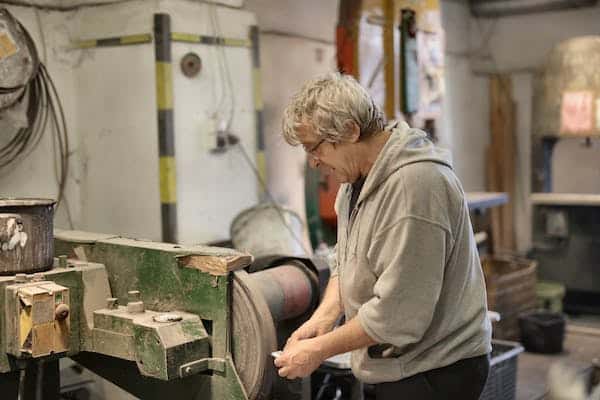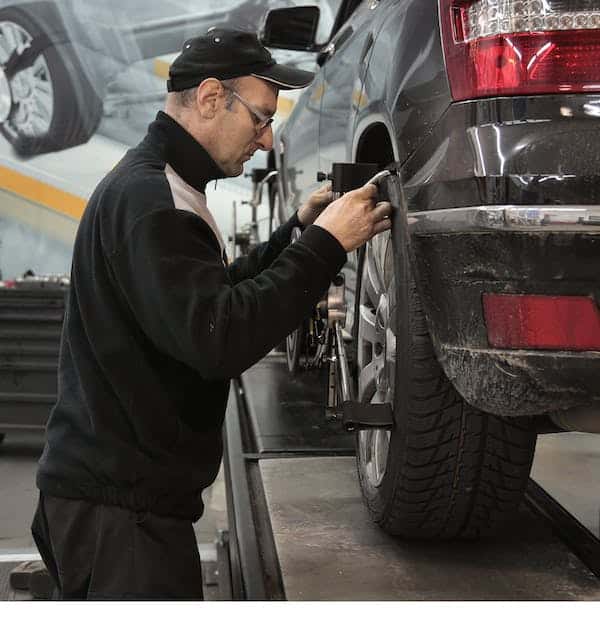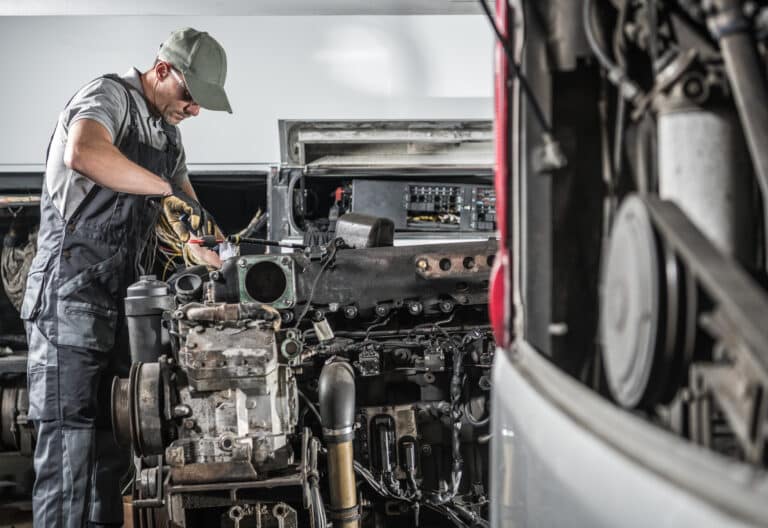Are you interested in pursuing a career in Diesel Mechanics?
When you begin the process of applying for jobs in any profession, your first step should include building an impressive resume. A good resume summarizes your professional experience, education, and skills in front of an employer, all of which are necessary for employers to pay heed to when hiring potential employees.
If you are a diesel mechanic aspirant or have just graduated as a certified diesel mechanic, you must be wondering how you can build an impressive resume and outshine other candidates.
Read on to know everything you will need to build a solid resume, including tips on what to include, formatting, how to design a resume, and more.

How To Create Your Diesel Mechanic Resume?
A resume is one essential document that you need to update throughout your professional career. This document is the first thing an employer sees, even before contacting you, so generally, you would want to make a good impression starting out.
The most important point while building a resume is that it should not be a multipurpose document and, rather, should be catered to according to each position and organization that you’re applying for.
The diesel mechanic jobs market is vast, and there are thousands of candidates that apply for positions each day.
Among the stack of resumes an employer gets, you would need to build an impressive one to stand out from the crowd. This means including the right content in an organized manner that is easily readable.
What Should You Include in Your Resume?
It is evident that every resume is unique due to every individual’s unique experiences, background, and skills. Still, there are some common things that every resume should include, such as:
Career Objective
A career objective is a statement that tells the reader who you are and what you are looking for in your career. Even though career objectives aren’t always required, an impressive resume should have one.
A good career objective is bound to impress the employer and keep them hooked to your resume.

An example of a good career objective can be:
“I am an XYZ university graduate and am seeking an employment opportunity with Peterbilt. I have specialized X years of experience in diesel engine technology and the capability of working in a fast-paced environment. My skills include working with heavy-duty machinery and transportation refrigeration.”
Work Experience
This will be the most essential part of your resume, wherein you will need to list all of your professional experience. The list should be in chronological order, starting from your most recent role to the oldest.
For every job role, you will need to add the following details:
- Your job title
- The company name you worked at
- The duration of your work period (Start Date to End)
- A list (In Bullets) of all your tasks and your accomplishments, if any
Even though this section is usually made for highlighting your experience in front of the employer, if you are a recent graduate, you might not have a lot of experience to add.
But don’t worry, for recent graduates; this section can be used to highlight all of the personal projects you have worked on. This implies that you have the passion and the needed skills.
If you have completed an externship, you can mention about it in your resume. (Under experience)
If you’re applying for a specific type of diesel mechanic, such as marine diesel mechanic, mobile diesel mechanic, or heavy duty diesel mechanic, make sure you include the relevant experience.
Education
This is another important section that employers will usually pay heed to on your resumes. In this section, you will need to list the schools or universities you have attended, any programs you have completed, your GPA achieved, and the year you graduated from these programs.
Also, according to your profession, any certifications that are required should also be enlisted here. For Diesel Mechanics, the ASE Diesel Mechanic certifications should be included in this section.

If you are just starting out as a recent graduate from a diesel mechanic school, to make up for your lack of experience, you can include more details on your education.
For instance, you can list all of the courses you took during your diesel mechanic training program.
Skills
As a diesel mechanic, you will need to gain certain necessary skills, such as troubleshooting issues within the engines, automatic transmissions, and more.
Make sure to add all the required skills to the list. This will imply that you are the best candidate for that role. (Here’s everything you need to know about diesel mechanic requirements)
There are some common skills that every employer looks for while choosing candidates, these are:
- Engine Repair
- Quality control
- Calibration of equipment
- Knowledge of handling basic tools
- Proficient in basic computer skills such as Microsoft Word and Excel
- Managing crews
Accomplishments and Awards
When applying for a position, if you feel like you have any awards or accomplishments that can help you with the process, then you can create a section of accomplishments on your resume.
Contact Information
Contact information is required for your resume. Employers might want to get in touch with you, so make sure your contact information is updated. Generally, you will need to include the following information on your resume:
- Name (both first and last)
- Phone Number
- Email Address
- Home Address
- LinkedIn or other social media 9blogs or websites, optional)

How Do I Design My Resume?
After you have made sure you have gathered all the appropriate information needed, you will need to think of a design for your resume. The layout of your resume is also considered to be important, as it helps the employer decide whether they want to keep reading or not.
If a resume is haphazard or unorganized, employers are likely to skip past it.
If you’re just starting the process of applying and building a resume, thinking of a design can be intimidating.
However, there are various free resume templates that you can choose from online, wherein you only have to fill in your information on a pre-designed resume template.
Another tip is to look for simple designs for your resume and choose neutral colors. Also, ensure that the font you use is basic and readable. Usually, employers prefer resumes to be one page in length.
Always Add a Cover Letter
Even though cover letters are usually not required, employers prefer candidates that go the extra mile and attach a good cover letter.
Since a cover letter is literally a letter to the employer, it needs to be tailored according to the position you are applying for.
After you make a draft of a cover letter, you can get an opinion from your friend or family member for proofreading the tone and language.
An example of a cover letter is as follows:
Dear HR Team,
I am writing this letter to seek an opportunity for the enlisted position of entry-level Diesel Mechanic at your organization. I have recently completed my graduation from Auburn University, Texas, and I am planning to move to California after I complete my training.
I have attached my resume, and my experience so far involves working with heavy-duty diesel trucks and inspecting and maintaining their functioning. I am detail-oriented and have experience working in a multitasking environment. Hence I believe I would be a good fit for this position. I will be honored to be a part of your team and aid in the evolution of your organization. I have my ASE certifications, my CDL, and my own tools.
I hope to discuss more with you soon.
Sincerely,
(Your name)
(Your phone number)
Following Up After Interview
When you give an interview for a position, you must have seen that there are several other candidates that the employer needs to choose from while hiring.
Even though not necessary, a thank-you letter goes a long way in getting noticed by the employer in case they happen to miss or skip your profile.
A thank-you letter shows professionalism and also implies to the employer that you are a good fit for the position.
Another tip is to send your thank-you letter within 24 hours after your interview and to keep the letter as brief and straightforward as possible.
For instance, you can write:
Dear HR Manager/Sir/Ma’am,
I am writing this to express my gratitude to you for taking the time to meet me and discuss the diesel mechanic position at your organization. It was an honor to speak with you and to learn more about the job role and the organization one-on-one.
I am enthusiastic about this position and believe my skills and experience make me a good fit for this role. In case you need any additional details from me, please feel free to contact me. I hope to hear from you soon.
Sincerely,
(Your name)
Additional Resources
How to Become a Diesel Mechanic
Diesel Technician Salary
What does a diesel mechanic do
Diesel Mechanic Apprenticeship
Diesel Mechanic Degree
How long is diesel mechanic school
Diesel Mechanic Job Description
Diesel Mechanic Tools
What is a Diesel Mechanic





